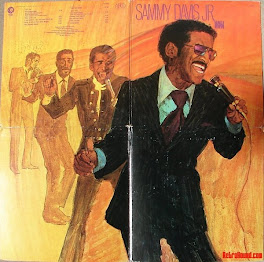If there was one theoretical force pushing a sense of universal economic well-being, it was Marxism.
These words come from someone quite aware of the advantages in capitalist economics, of the favorable fall-out from growth, advantages in expanding markets, minimal interference with what men contract to do. To the extent those relationships can be explained, they are 'rational'.
Marxism thought the moment had come when such economic craft could serve all equally, and would be the vehicle for an economically egalitarian society.
Why did it fail? Here are some possible, though short, answers:
1) It was misapplied. The USSR and its clones simply couldn't pull it off.
2) In being applied, surprise implications came to the surface. An egalitarian society, might, for instance, hold low what otherwise might show as 'excellent', and might simply let rise or insist on making rise what gives 'best lipservice'.
3) After being applied, its incompleteness appeared. Institutions thought to be extraneous 'superstructures' of the old guard actually had continuing -- and vital -- use. Point to viable parliamentary systems or to religious 'support systems'.
4) It was never applied. The conditions Marx and company thought were needed have never come into being at the crucial level.
Easy enough in the comfortable West (and its emulators in other parts of the global geography) to give commies the old 'Bronx cheer' -- so many of them were apparatchiks or butchers, manipulators or hypocrites, cynics or self-protecting survivors.
Too easy, also, to conclude that the older, 'tried-and-true', ways are proven-out. Those who wave Adam Smith's The Wealth Of Nations as though it were a true 'little red book' of foundational wisdom may be able to explain many economic relationships in a rational way. They cannot, with any good conscience, explain economic activity itself as rational. What's done by men (inclusive, here, to include women, of course) always must be read as having an undercurrent of the irrational in it.
Even the rational compromises represented by bargains and contracts and the legal rules protecting them must implicitly allow for motives that are unspoken, for the irregular and not always stable psychological development of individuals, for the cultural routines, traditional and seemingly arbitrary, of human place, for social allegiances (like family, clan, race, etc) that structurally trump any particular economic agreement. All those work under the surface of all transactions. The transactions are only so good as the . . . shifting irrationality (?) . . . allows.
Any theory must account for the irrational. Is that possible?
Marxism, undear, dead.
Long live the [?].
.







































I'm beginning to wonder if any of it works! We've tried serfdom,slavery,agrarianism,communism and capitalism, even Tony Blair's Third Way,whatever that was.
ReplyDeleteNow we are in post-industrial totalitarianism and almost certainly that won't work either.The longest running civilisation was Ancient Egypt, a theocracy, which seemed to work for them.
My country is now a banana republic,without the bananas!
I like your phrase. What we're living through now certainly wishes to be 'totalitarian' (in a 'nice way', of course, like some of the scenarios in that old Patrick McGoohan show The Prisoner).
ReplyDeleteAnd it may be pitted against angry, wasp-bitten theocracies which have nothing to offer beyond visualizing oneself as unworthy dust.
Any optimism around?
Optimism? requires an element of love, I think.There isn't much of that around right now.This world is full of hate and anger, both in your country and mine.I however see some hope in India, a growing power but in a nice way.The love of the Mahatma still exists.He did not like the Empire, but told his people to love the British.
ReplyDeleteIndia will be the salvation of the World, it is the origin of our civilisation and will teach us how to behave.I feel comfortable in knowing that this country will once again take it's place in the World.There are a million Hindus in Britain and they are kind caring, hard working people who are devoid of bigotry.This makes me optimistic.
I hadn't given thought in that direction, but what you say sets nicely for now. Kindness and vision do still exist among some, and I'll let my hope lie with them.
ReplyDelete